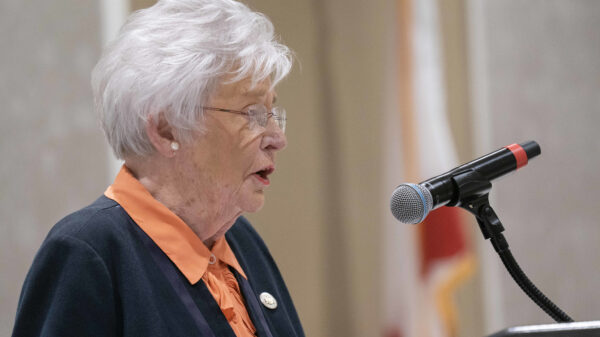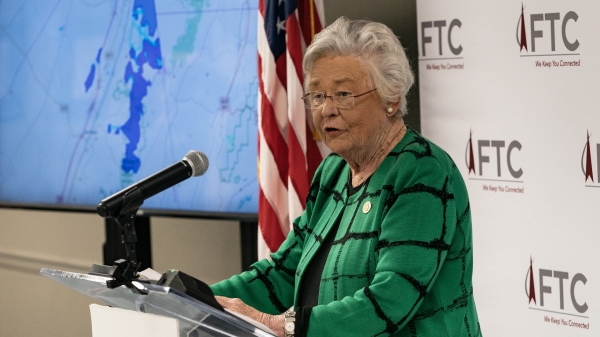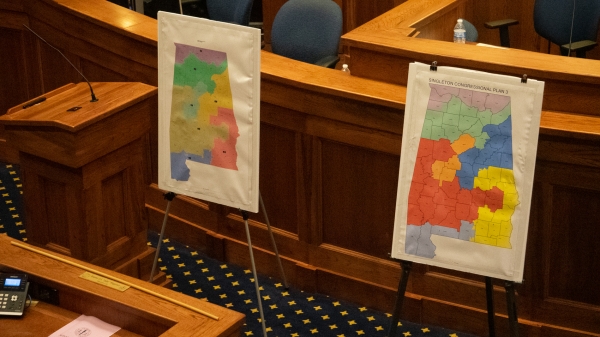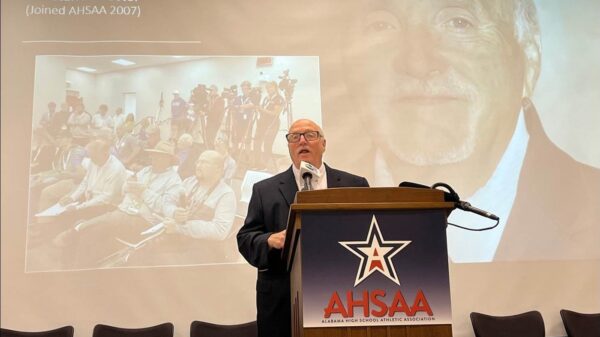By Brandon Moseley
Alabama Political Reporter
Thursday, May 12 the National Institute for Early Education Research named Alabama’s First Class Pre-K the nation’s highest quality pre-kindergarten program. This is the tenth consecutive year that Alabama’s First Class Pre-K program has earned this distinction. Alabama is one of only two states in the country to meet all 10 quality benchmarks as established by the National Institute for Early Education Research (NIEER).
Alabama Governor Robert Bentley (R) said, “A strong economic future is grounded in high quality education, and Alabama’s First Class Pre-K Program provides a great foundation for students to prepare for success in life. Alabama’s voluntary First Class Pre-K Program continues to boast standards of high quality and has been nationally recognized as a model for other programs. Our emphasis on quality is paying off in Alabama, and my goal is to continue to expand our pre-k program because it makes a real difference in the lives of Alabama’s children.”
Alabama Department of Early Childhood Education Secretary Jeana Ross said, “Alabama First Class Pre-K is a high quality program of excellence that values the importance of highly skilled teachers in providing children the learning experiences that significantly impact school achievement and life success. Through a coaching and monitoring system each pre-k class is supported to provide the quality that produces real sustained results in closing the learning gaps for children and fosters the social, emotional and cognitive development of all children. As the access to this high quality program continues to expand, Alabama will determinedly preserve this standard of quality.”
The Alabama School Readiness Alliance and its Pre-K Task Force, which advocates for expanding Alabama’s First Class Pre-K program, applauded the announcement, but pointed out that many families who want to enroll their four-year-old in the program still lack access to a classroom in their community.
Bob Powers, president of The Eufaula Agency and the co-chair of the Alabama School Readiness Alliance, said, “We congratulate state leaders and Alabama First Class Pre-K teachers for building and maintaining the nation’s highest quality pre-k program. It takes a strong commitment from everyone involved to reach this milestone for ten consecutive years.”
In Alabama, enrollment was up by 1,738 students, a substantial increase in 2014-2015, while still maintaining its strong rating in terms of quality standards. Alabama also improved its national standing for state resources dedicated to pre-K by three positions, increasing by nearly $1,000 per child to remain just above the national average.
NIEER Director Steve Barnett said, “Alabama’s economic future depends on early investment in its kids. Ensuring that every child has access to high-quality preschool can help pave the way for their success in school, on the job, and in Alabama’s communities. The state made notable progress on early education thanks to strong state leadership, and more remains to be done. Alabama’s kids, their families, and the state depend on it.”
Barnett said, “Expanding access to quality pre-K programs is one of the best investments we can make, and it’s critical that we raise and standardize salaries for early education teachers and have strong Dual language Learner policies in states with large Hispanic populations. State governments should increase and stabilize funding for pre-K and raise standards for the benefit of all children.”
Vice chairman of Harbert Management and the co-chair of the Alabama School Readiness Alliance Pre-K Task Force Mike Luce said, “The quality of Alabama’s First Class Pre-K program is producing real results. According to the Public Affairs Research Council of Alabama, First Class Pre-K alumni consistently outperformed their peers in reading and math in every grade level studied, through the sixth grade. These results reinforce and validate our belief that expanding Alabama’s First Class Pre-K program is not only the right thing to do, but the smart thing to do.”
The NIEER quality benchmarks include: Comprehensive early learning standards; Pre-k teachers have a bachelor’s degree; Pre-k teachers have specialized early childhood training; Assistant pre-k teachers have a Child Development Associate (CDA) credential; Teachers participate in a substantial number of hours of professional development; Maximum class size is 20 or fewer; Staff to child ratio is 1:10 or less; Children receive screening, referral and support services for vision, hearing, dental, health and other support areas; Children are provided meals and/or snacks; and Systems hold individual classrooms accountable and monitor to ensure quality standards are being met.
The ASRA Pre-K Task Force consists of 51 prominent leaders from the business, education, civic, medical, legal, philanthropic, military and child advocacy communities. The task force is in year four of its ten-year campaign to advocate for full funding for the First Class Pre-K program by the 2022-2023 school year.
The Alabama State Legislature approved a $16 million expansion of the states pre-kindergarten program in the fiscal year 2017 education trust fund (ETF) budget. Along with funding from year two of Alabama’s four-year federal Preschool Development Grant, the $16 million increase will allow Alabama to open approximately 155 additional classrooms and help enroll approximately 2,800 more four-year-olds than the current school year. This should increase the total number of students in the program to approximately 14,500 four-year-olds statewide. The percentage of Alabama four-year-olds enrolled will increase from 20 to 25 percent.






















































